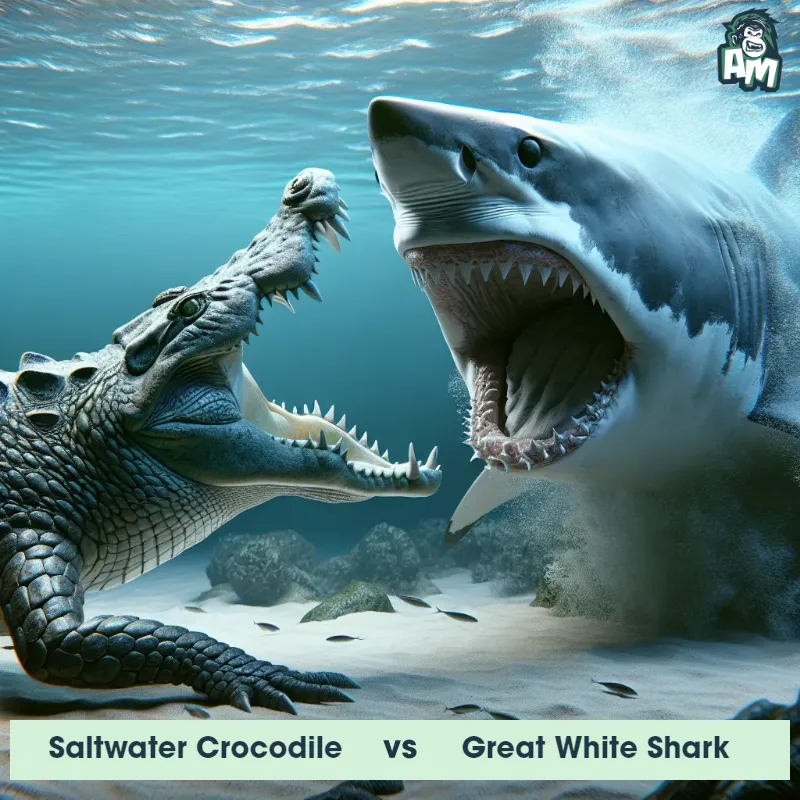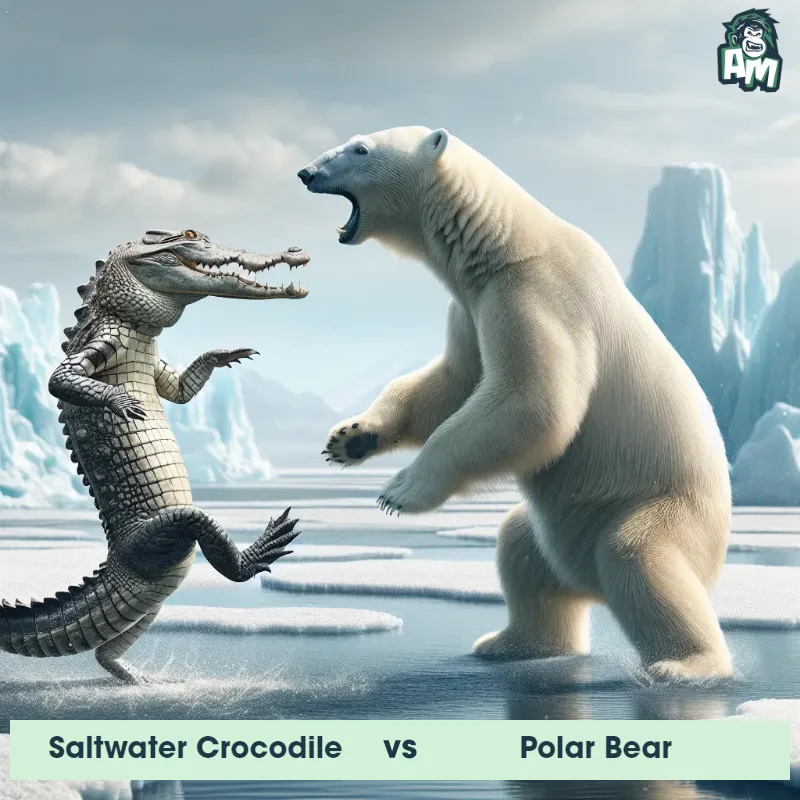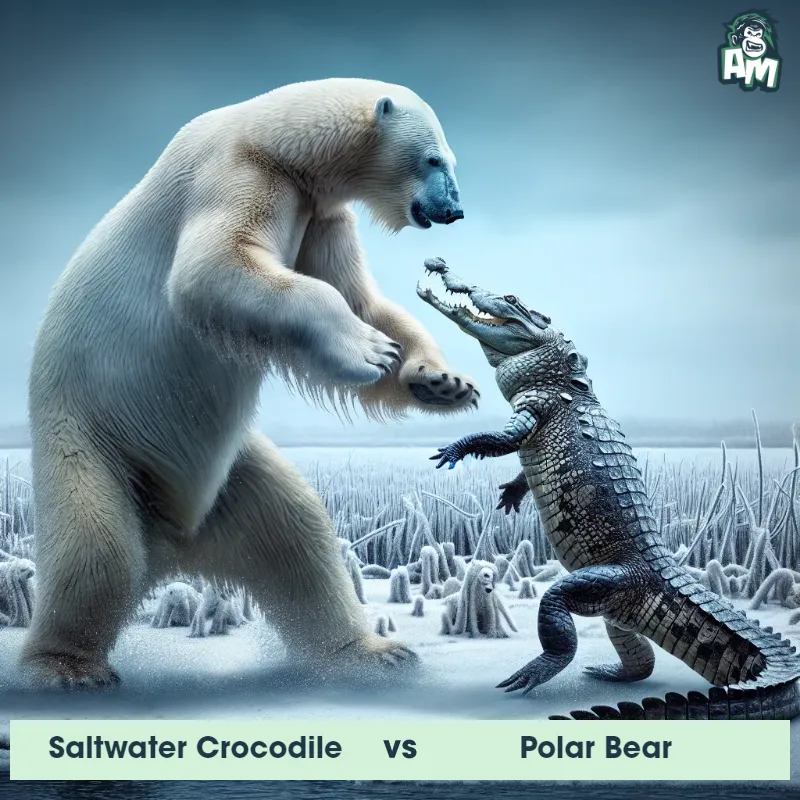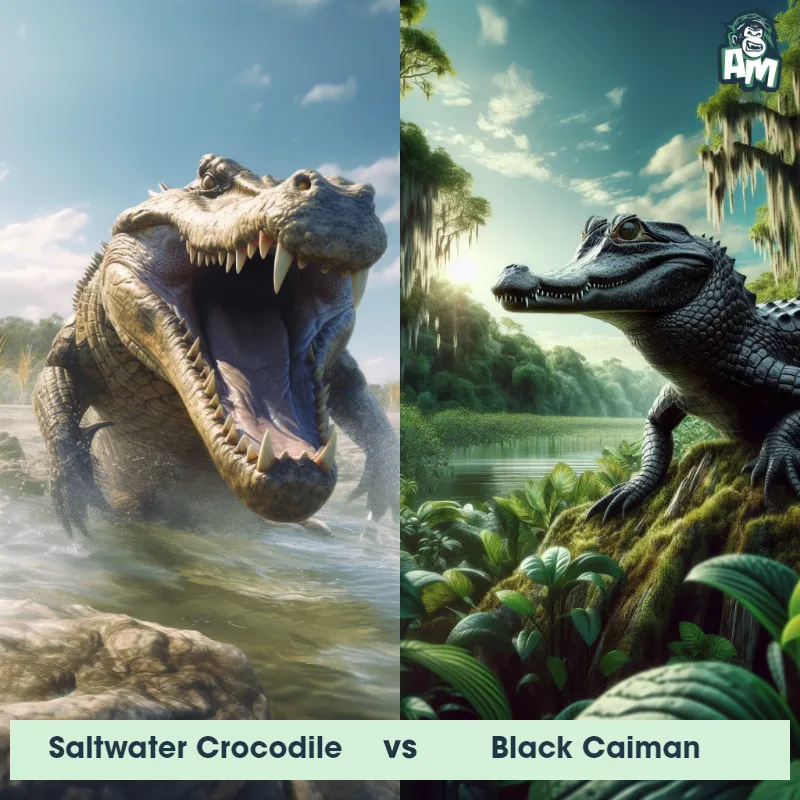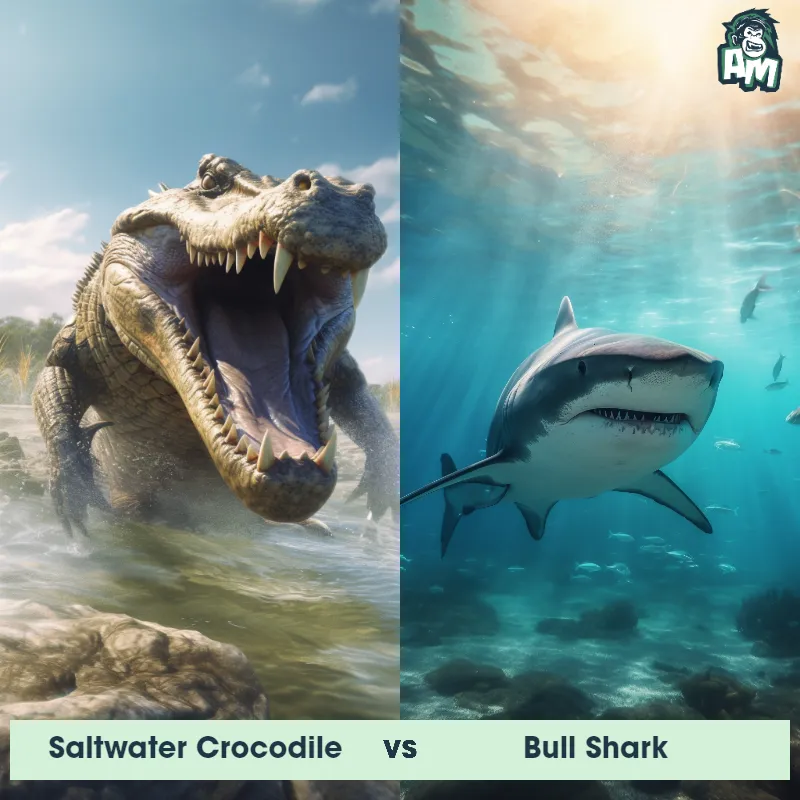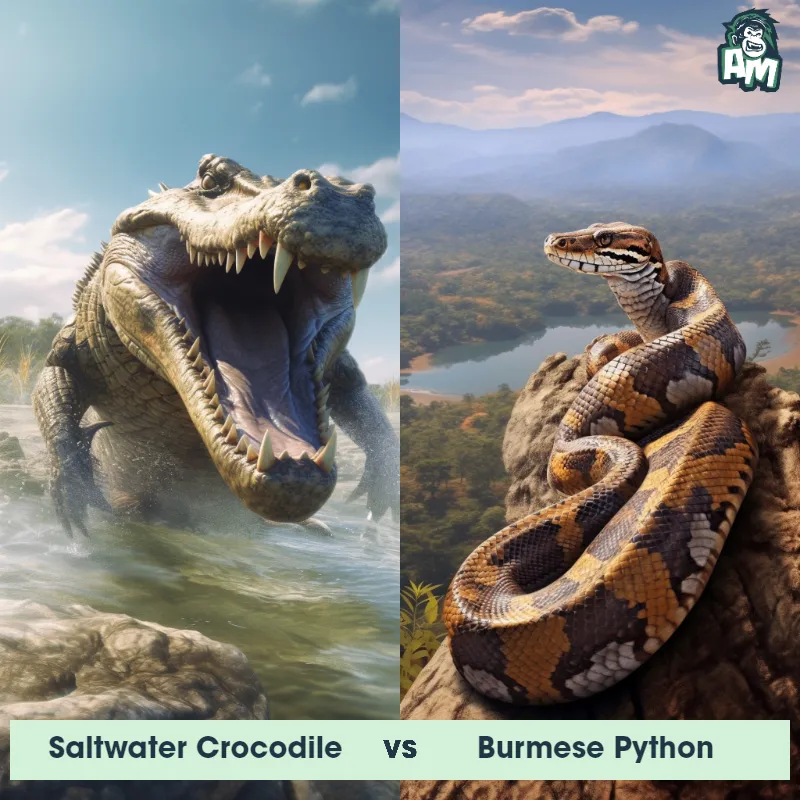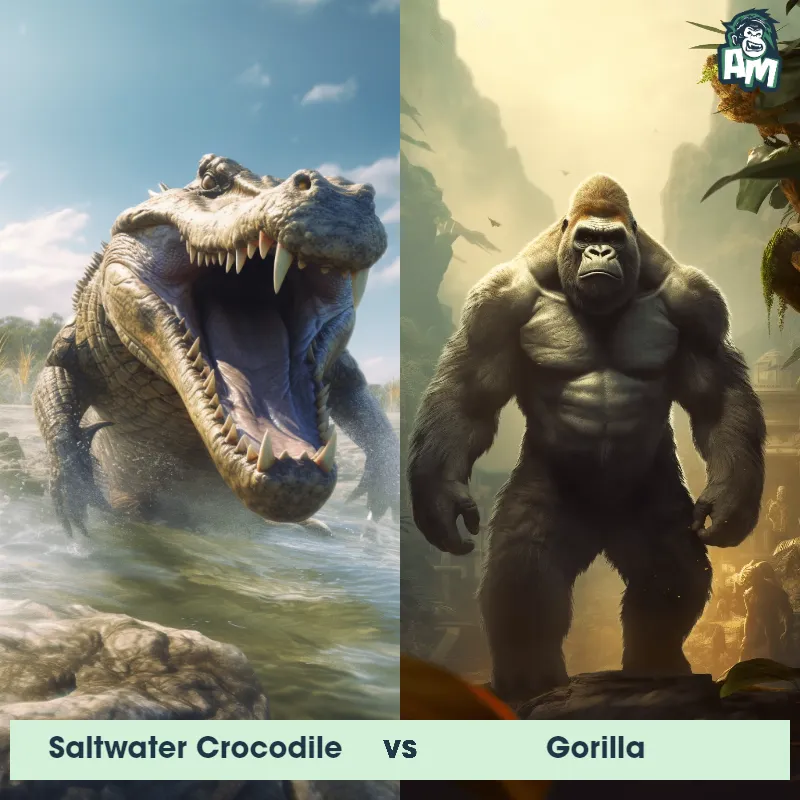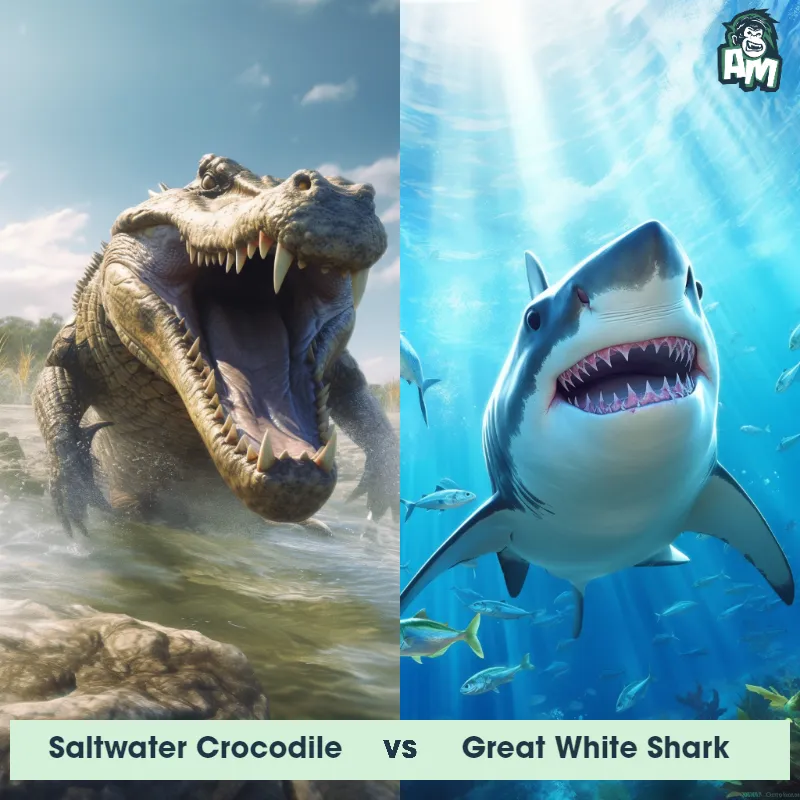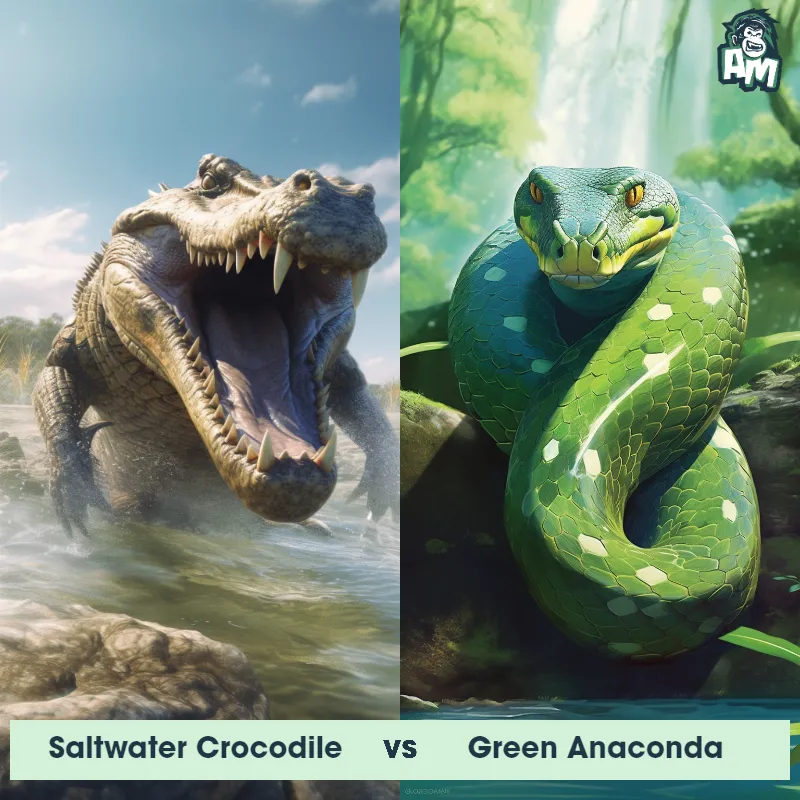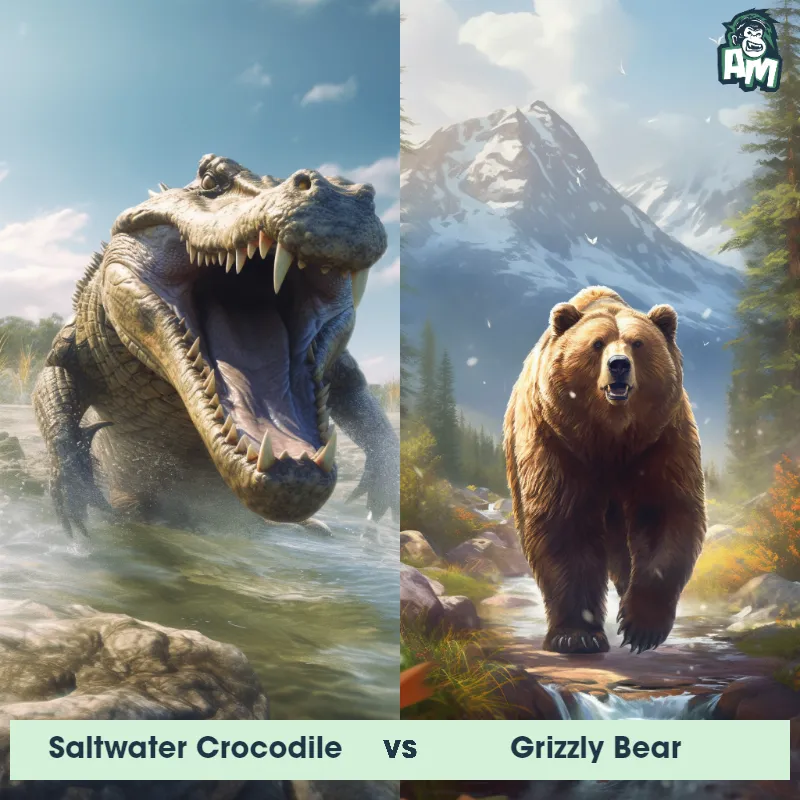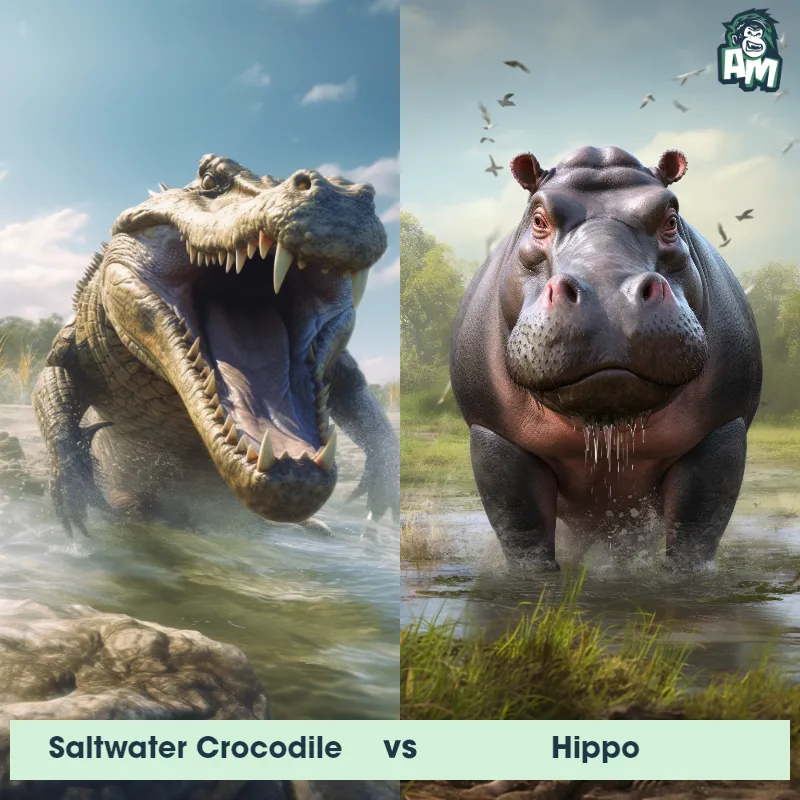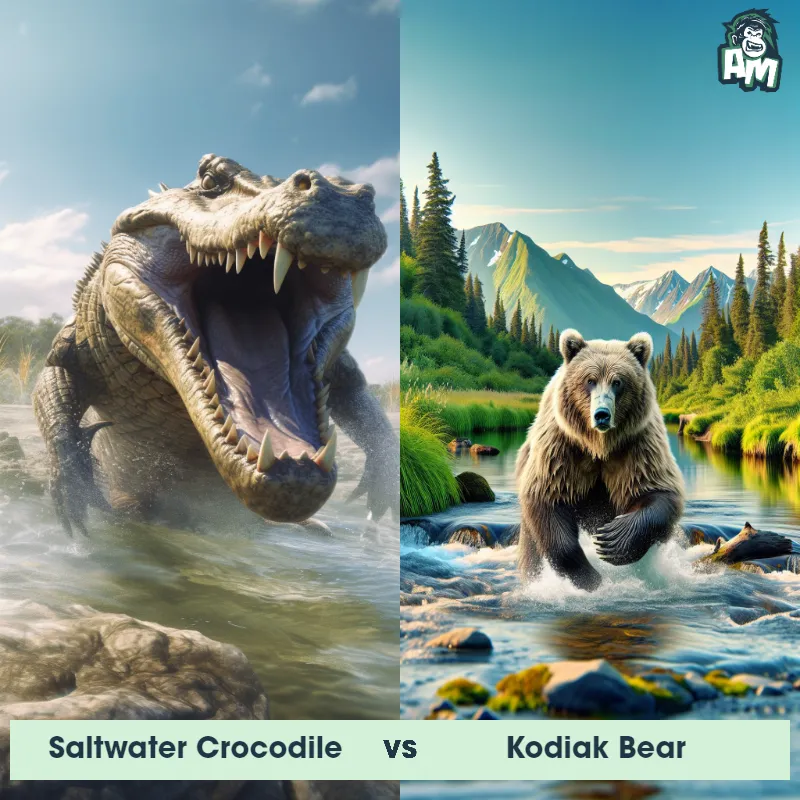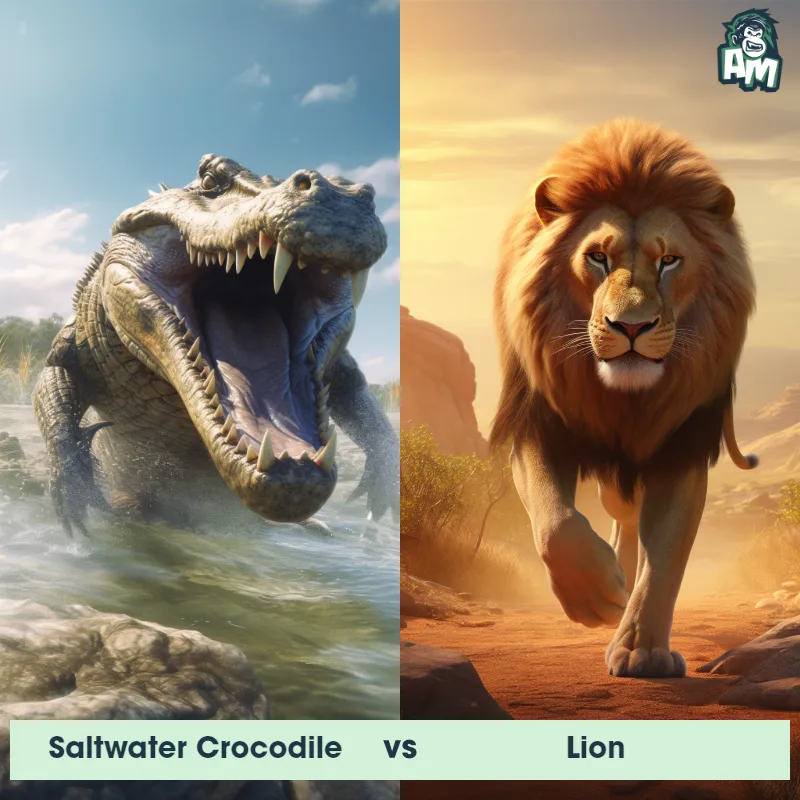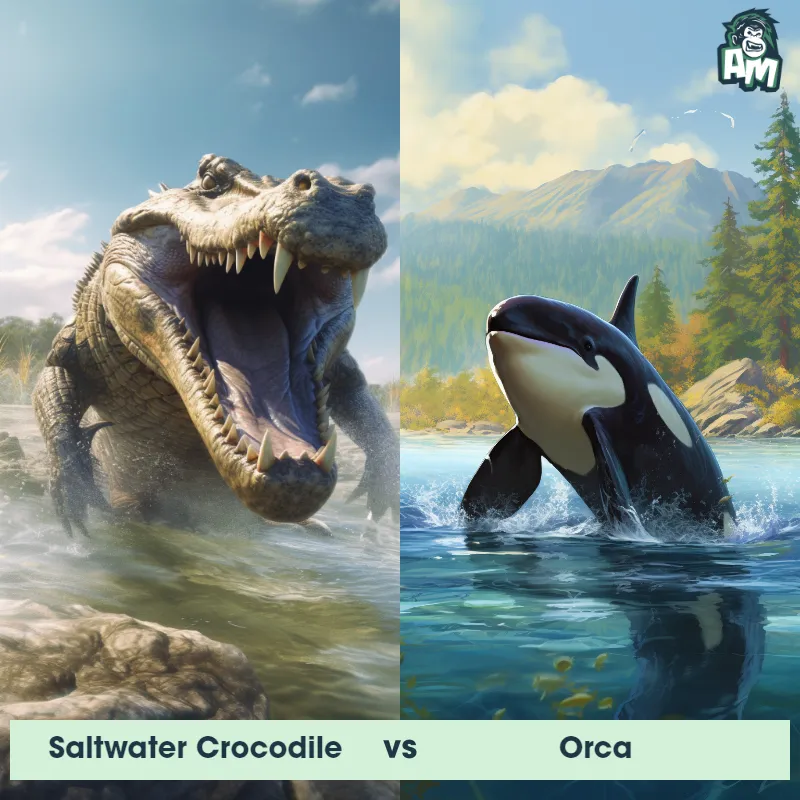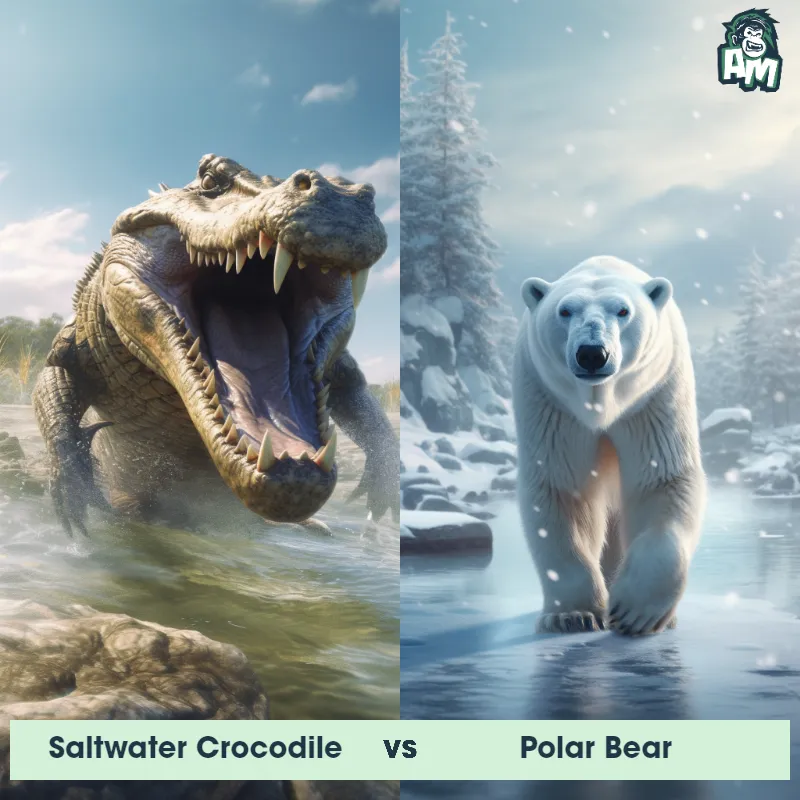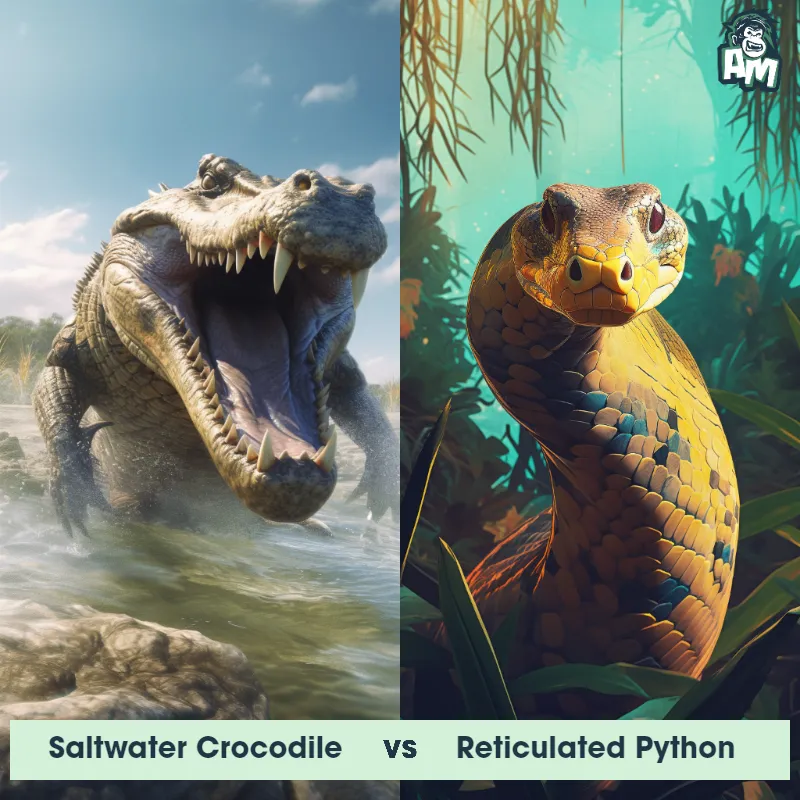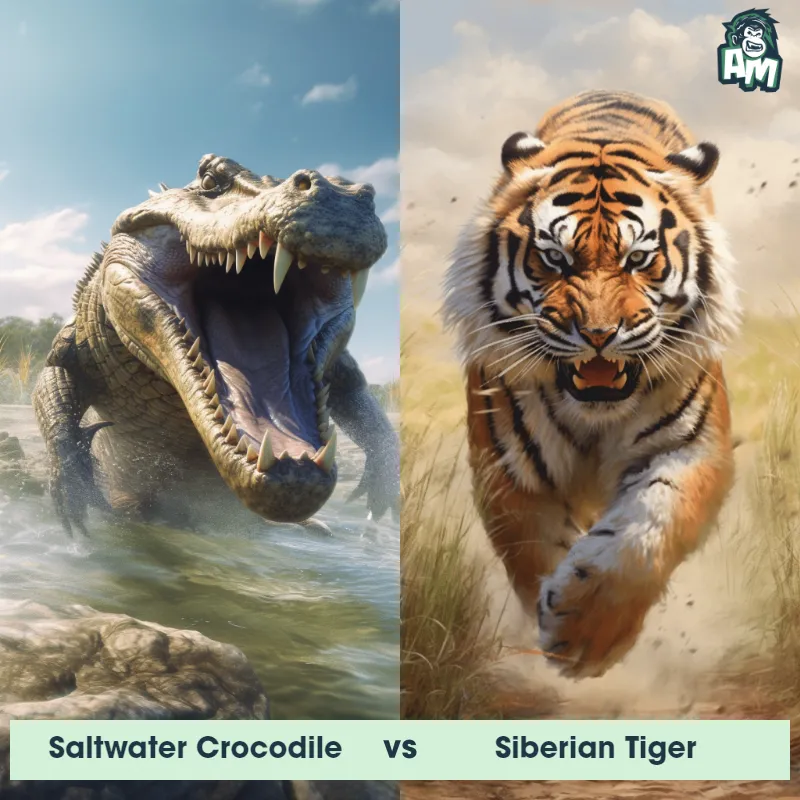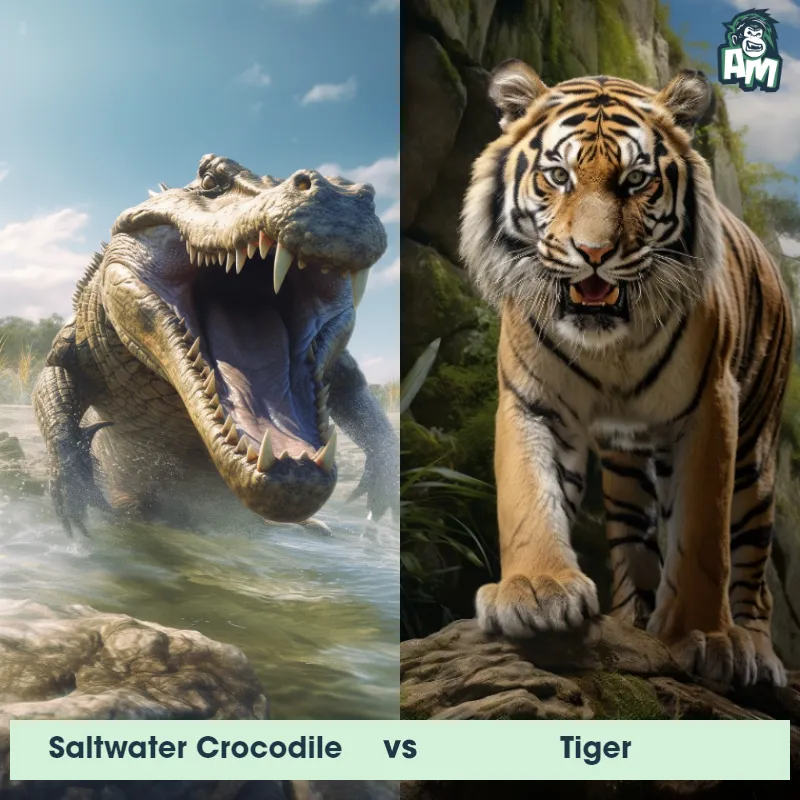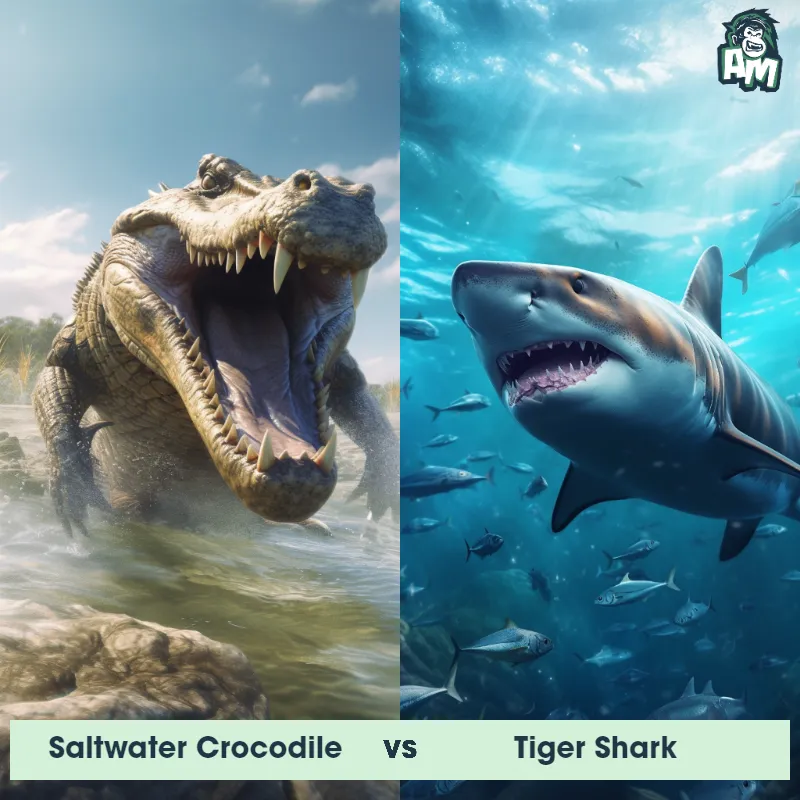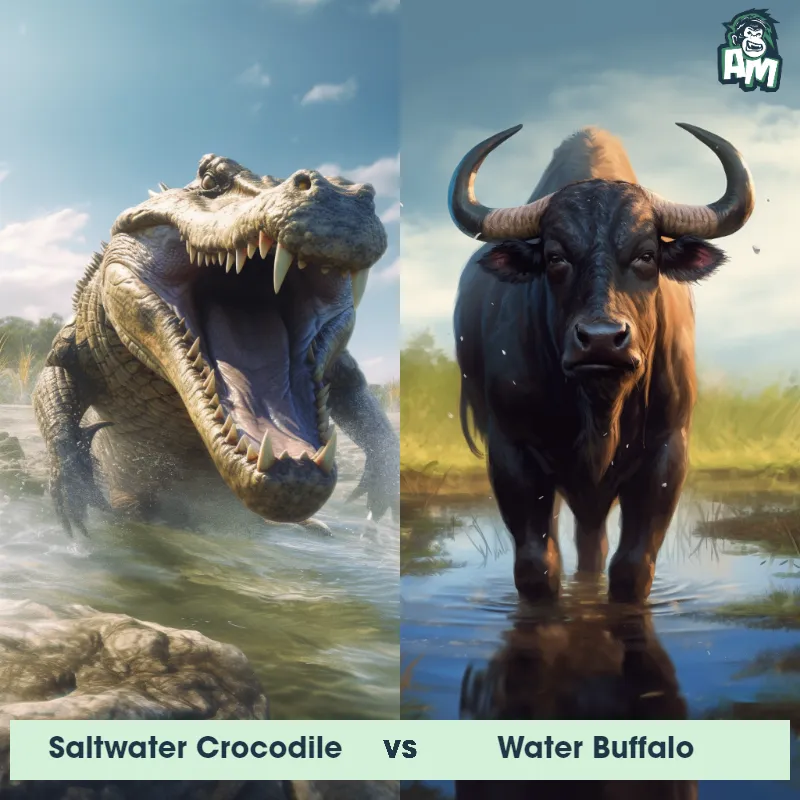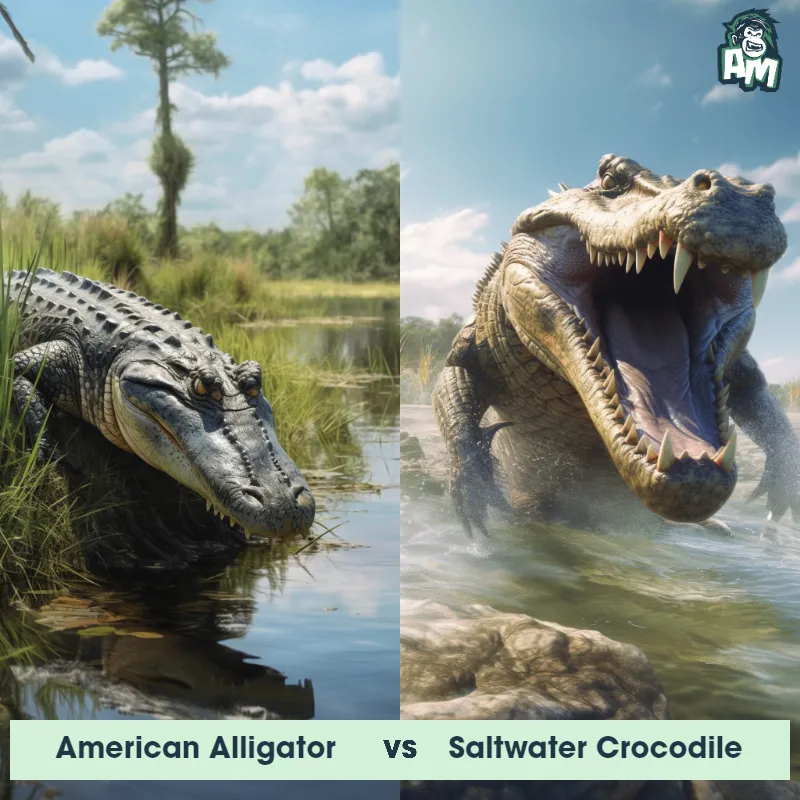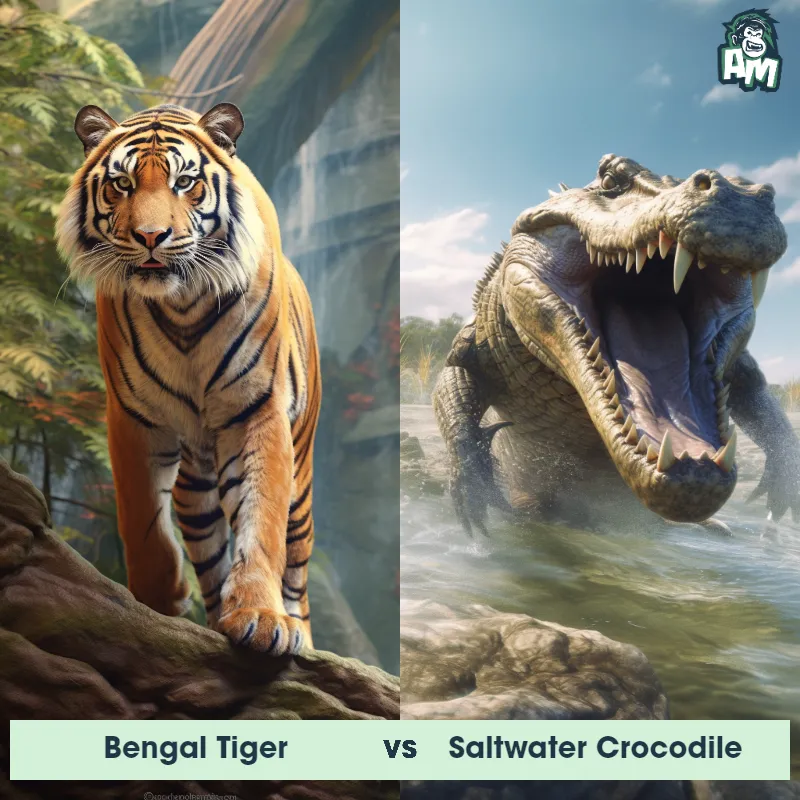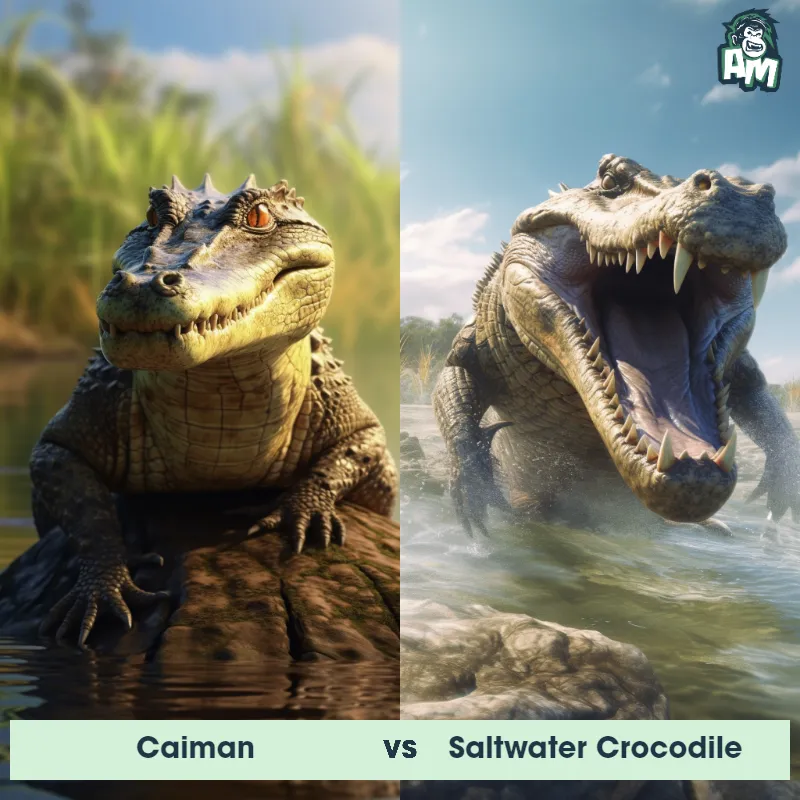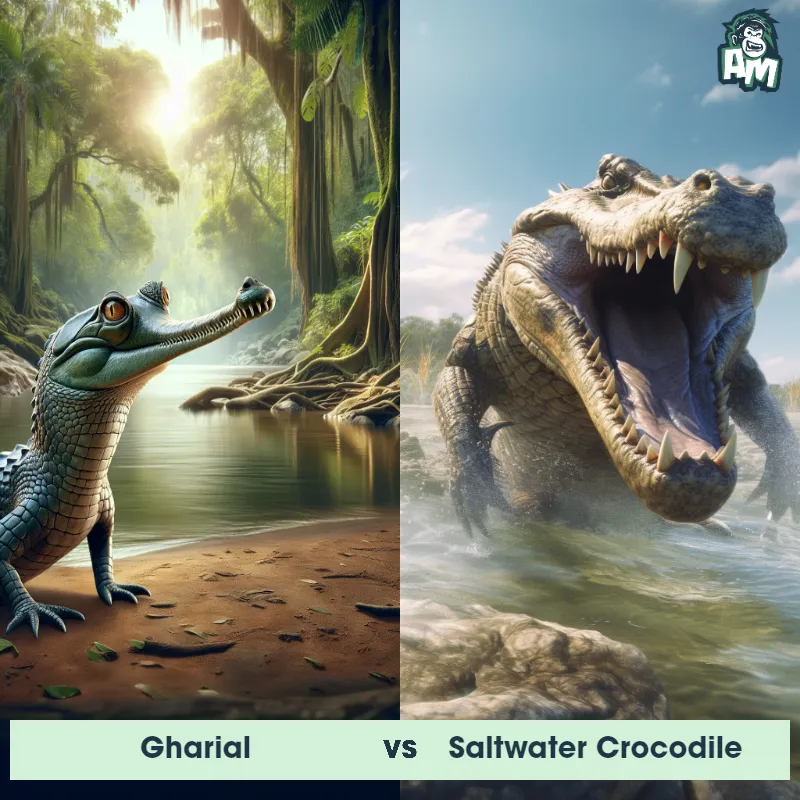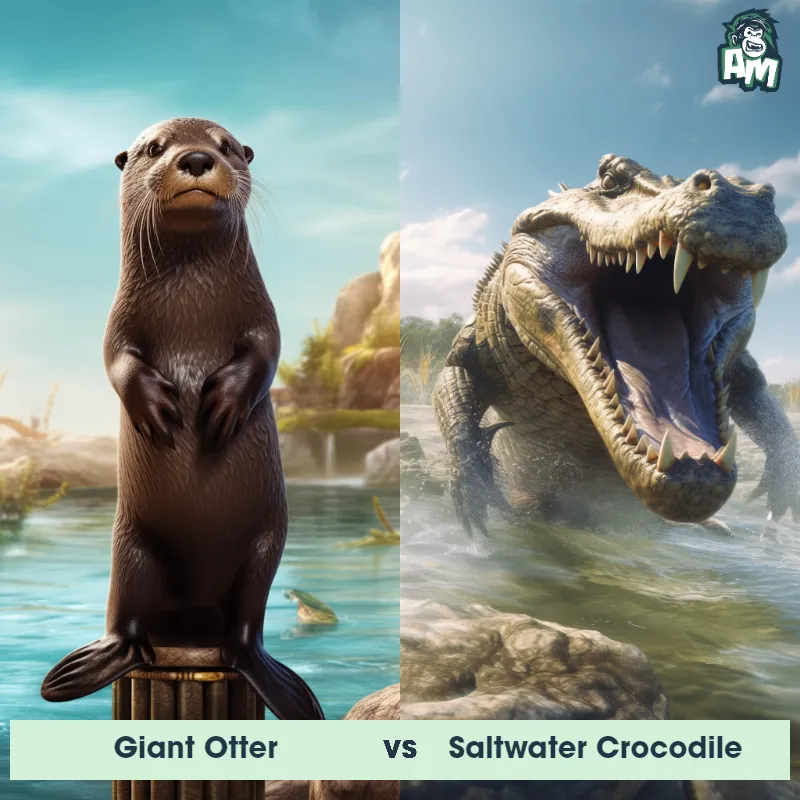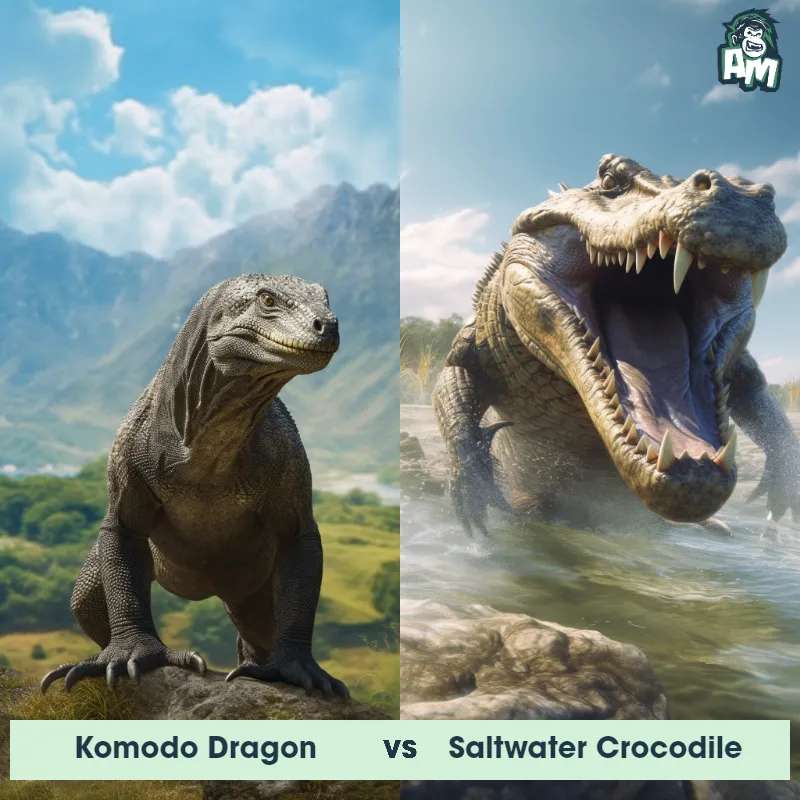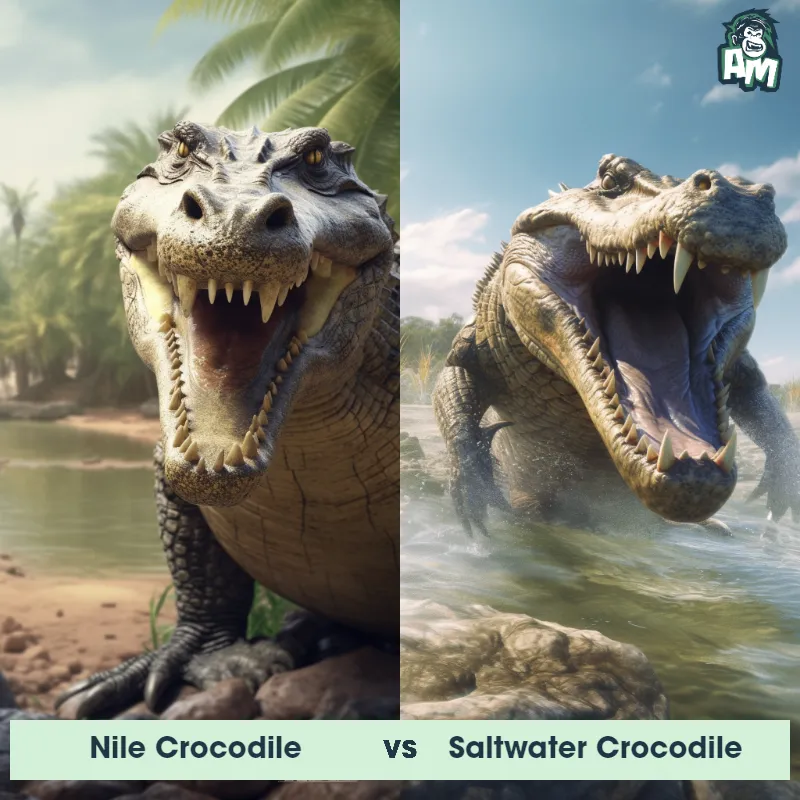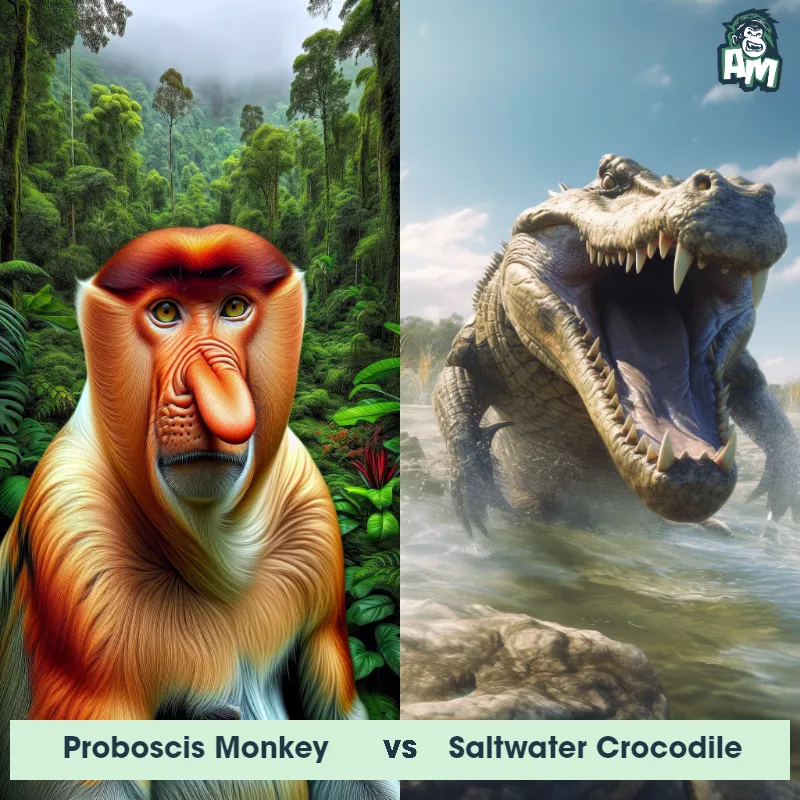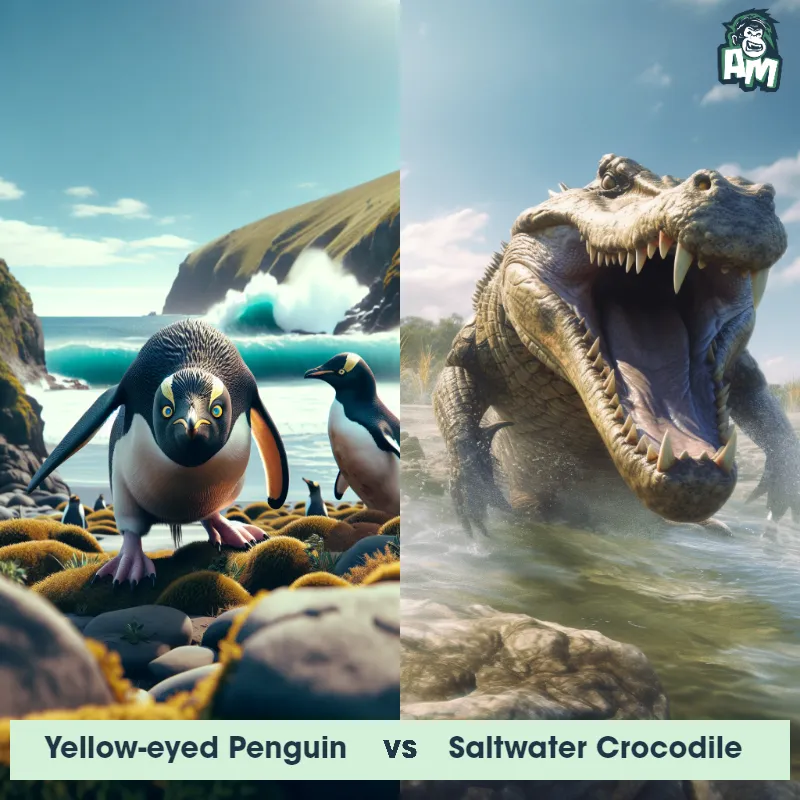The Saltwater Crocodile
The Saltwater Crocodile, also known as the estuarine crocodile, is the largest living reptile in the world. These formidable predators can grow up to 7 meters 23 feet in length and can weigh over 1,000 kilograms 2,200 pounds. They have a powerful jaw equipped with sharp teeth that allows them to exert a tremendous amount of force when hunting their prey. Saltwater crocodiles have a dark grey or olive-brown coloration, with a long snout, a muscular body, and a tail that is used for propulsion in the water. They are well-adapted to their semi-aquatic habitat, spending most of their time in rivers, estuaries, and coastal areas throughout Southeast Asia and Northern Australia.
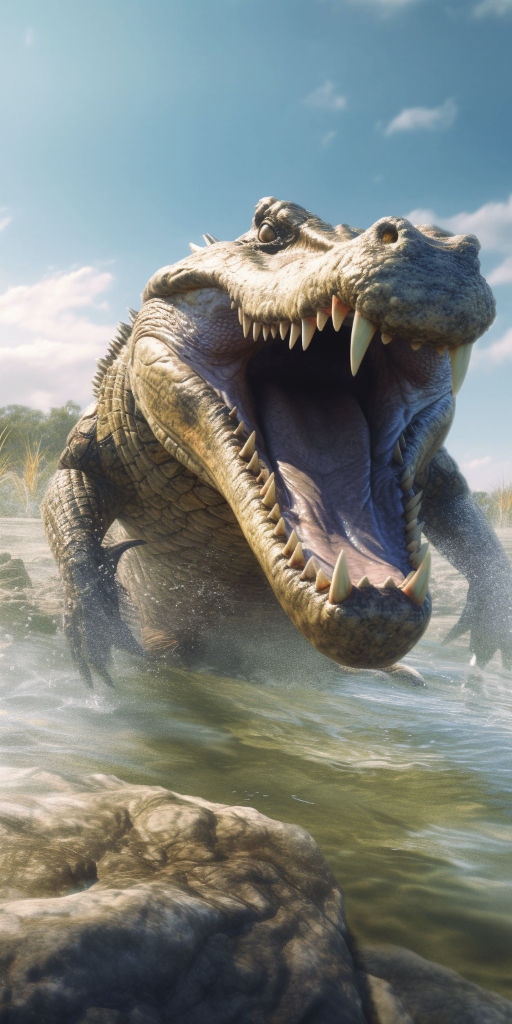
| Saltwater Crocodile | |
|---|---|
| Size | Up to 23 feet (7 meters) |
| Weight | Over a ton (1,000 kg) |
| Speed | Land Speed: 11 mph (18 km/hr) |
| Key Strength | Powerful jaw with 64-68 teeth and strongest bite force of any animal in the world |
| Biggest Weakness | Slow on land and vulnerable to attacks on the soft underbelly |
| Scientific Name | Crocodylus porosus |
| Family | Crocodylidae |
| Habitat | Brackish and freshwater habitats |
| Geography | Southeast Asia and Northern Australia |
| Diet | Carnivorous, preys on fish, birds, mammals, and other reptiles |
| Lifespan | 70 years - 100 years |

The Saltwater Crocodile
The Saltwater Crocodile, also known as the estuarine crocodile, is the largest living reptile in the world. These formidable predators can grow up to 7 meters 23 feet in length and can weigh over 1,000 kilograms 2,200 pounds. They have a powerful jaw equipped with sharp teeth that allows them to exert a tremendous amount of force when hunting their prey. Saltwater crocodiles have a dark grey or olive-brown coloration, with a long snout, a muscular body, and a tail that is used for propulsion in the water. They are well-adapted to their semi-aquatic habitat, spending most of their time in rivers, estuaries, and coastal areas throughout Southeast Asia and Northern Australia.
Fun Fact: The Saltwater Crocodile has the strongest bite force recorded in any living animal, with an estimated bite force of 3,700 pounds per square inch psi, which is more than twice the bite force of a Great White Shark.
| Saltwater Crocodile | |
|---|---|
| Size | Up to 23 feet (7 meters) |
| Weight | Over a ton (1,000 kg) |
| Speed | Land Speed: 11 mph (18 km/hr) |
| Key Strength | Powerful jaw with 64-68 teeth and strongest bite force of any animal in the world |
| Biggest Weakness | Slow on land and vulnerable to attacks on the soft underbelly |
| Scientific Name | Crocodylus porosus |
| Family | Crocodylidae |
| Habitat | Brackish and freshwater habitats |
| Geography | Southeast Asia and Northern Australia |
| Diet | Carnivorous, preys on fish, birds, mammals, and other reptiles |
| Lifespan | 70 years - 100 years |
Match Highlights
Saltwater Crocodile Matchups
We use AI to simulate matchups between the Saltwater Crocodile and other animals. Our simulation considers size, strength, and natural predatory behaviors to determine the most likely outcome.
Saltwater Crocodile: Diet, Predators, Aggression, and Defensive Behaviors
What do Saltwater Crocodiles eat?
Saltwater Crocodiles are apex predators and their diet mainly consists of fish, birds, mammals, and occasionally other reptiles. They are opportunistic feeders and their diet may vary depending on factors such as availability of prey and habitat location.
Do Saltwater Crocodiles have any predators?
Adult Saltwater Crocodiles have few natural predators due to their large size and aggressive nature. However, young crocodiles are vulnerable to predation by larger crocodiles, birds of prey, and large mammals such as jaguars.
Are Saltwater Crocodiles aggressive?
Saltwater Crocodiles are known to be extremely aggressive and territorial animals. They will attack anything that they perceive as a threat or potential prey, including humans. They are responsible for numerous attacks on humans each year.
Do Saltwater Crocodiles fight?
Saltwater Crocodiles are highly territorial animals and will often engage in fights with other crocodiles, particularly during mating season. These fights can be brutal and often result in injuries to the combatants.
How do Saltwater Crocodiles defend themselves?
Saltwater Crocodiles have several defense mechanisms to protect themselves from threats. They are capable of swimming at high speeds, have a strong bite force, and can use their powerful tail to defend themselves against predators or threats.
What is the biggest weakness of Saltwater Crocodiles in a fight?
Despite their size and strength, Saltwater Crocodiles have a relatively weak underbelly that is vulnerable to attacks. If this area is exposed during a fight, it can result in serious injury or death for the crocodile. Additionally, their eyes and ears are sensitive and can be targeted by aggressive predators.
Fun Fact: Saltwater Crocodiles are known for their ability to launch themselves out of the water in a powerful maneuver called the "death roll," where they rapidly spin their bodies while holding onto their prey, disorienting it and tearing it apart.
Fun Fact: Despite being primarily aquatic, the Saltwater Crocodile can survive in both freshwater and saltwater environments. They have specialized salt glands in their tongues that help them expel excess salt, allowing them to tolerate high levels of salinity and thrive in coastal regions.



